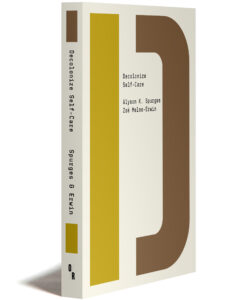
Decolonize Self-Care
ALYSON K. SPURGAS and ZOË MELEO-ERWIN
For twentieth-century feminists, it was a rallying cry for bodily autonomy and political power. For influencers and lifestyle brands, it’s buying fancy nutrition and body products at a premium. And it has now infiltrated nearly every food, leisure, and pop-culture space as a hugely lucrative industry.
What is it? To quote a million memes: it’s called self-care.
In Decolonize Self-Care, Alyson K. Spurgas and Zoë Meleo-Erwin deliver a comprehensive sociological analysis and scathing critique of the term’s capitalist, racist undertones. Decolonizing self-care, they argue, requires a full reckoning with the exclusionary, appropriative nature of most of the wellness industry, but this education is only the first step in the process. We must commit to new models of care and well-being that allow for health, pleasure, and community—for everyone.
Meet the Authors
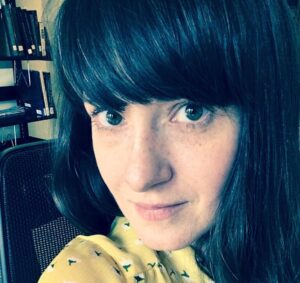 |
Alyson K. Spurgas (they/she) is Associate Professor of Sociology and affiliated faculty in the Women’s, Gender, & Sexuality Studies Program at Trinity College in Hartford, Connecticut. Alyson researches, writes, and teaches about the sociology of trauma, the politics of desire, and technologies of care from an interdisciplinary and intersectional feminist perspective. They are also the author of Diagnosing Desire: Biopolitics and Femininity into the Twenty-First Century (The Ohio State University Press, 2020), which won the 2021 Cultural Studies Association First Book Prize. Alyson lives in Brooklyn, New York, with their amazing partner and cat. Check out www.alysonkspurgas.com for info about Alyson’s writing, teaching, speaking events, and more. |
 |
Zoë Meleo-Erwin (she/her) is a qualitative sociologist and former assistant professor of public health. In 2022, she left academia to pursue a career as a user experience researcher in the tech industry. As a scholar, her work focused on the meanings of health and illness, health decision-making, experiences of embodiment, and the ways in which digital technologies facilitate the creation of both identity and community around health and illness. A list of her publications can be found on her website, www.zoemeleoerwin.com.
|
Meet the Respondents/Discussants
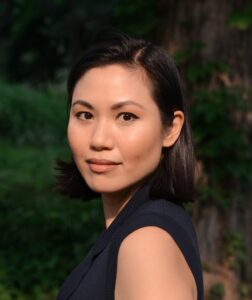 |
Catherine Tan is an Assistant Professor in the Department of Sociology at Vassar College. She holds a PhD in Sociology from Brandeis University. Her forthcoming book, Spaces on the Spectrum: How Autism Movements Resist Experts and Create Knowledge (Columbia University Press), investigates two movements that take issue with mainstream understandings of Autism Spectrum Disorder. She argues that science and health movements are important spaces for the cultivation and preservation of contentious knowledge—knowledge that aims to challenge dominant experts and authority. Such spaces organize the resources necessary to transform ideas into lived realities. This study draws from over three years of ethnographic fieldwork and interviews with members of the alternative biomedical and autistic rights movements. Learn more at www.catherinedtan.com |
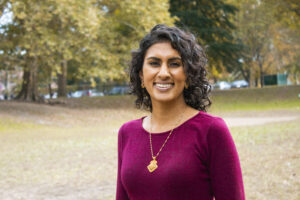 |
Sheena Sood, PhD (she/her) is a Philadelphia-based sociologist, activist, educator, and healing justice visionary of South Asian descent. She is an Assistant Professor of Sociology at Delaware Valley University in Doylestown, Pennsylvania, where she teaches on sociology, social issues and political movements. Sheena’s current research project, Omwashing Yoga: Weaponized Spirituality in India, Israel, and the US, investigates the growing incorporation of yoga and mindfulness by far-right law enforcement, military, and vigilante groups. Sheena has also studied yoga at Kailash Tribal School of Yoga in McLeodganj, India (YTT-200hr, AYTTC-500hr). Envisioning a futuristic yoga that centers collective freedom by centering all humanity, living beings, and Mother Earth, Sheena curates “Decolonizing Yoga” workshops for yogis through frameworks that recognize yoga’s oppressive layers and liberatory potential. She is also the founder of Yoga Warrior Tales, an interactive adventure-based educational program that teaches children yoga and mindfulness through a social justice lens. Learn more at www.sheenashining.com
|
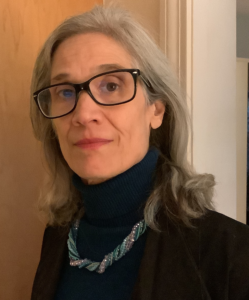 |
Kelly Moore is Emerita Faculty at Loyola University Chicago. She is a political sociologist specializing in the politics of technologies and knowledge claims. Kelly is especially interested in how military technologies and forms of discourse spread arise and are taken up in everyday life, shaping racegendered affective and embodied experiences. Her work has appeared in sociological and science studies journals. Recent and major publications include: Disrupting Science: Scientists, Social Movements and the Politics of the Military (Princeton, 2008), The Routledge Handbook of Science, Technology and Society (with D.L. Kleinman, 2014); Science, Technology and Inequality (with S. Frickel, forthcoming, Polity Press); The New Political Sociology of Science (with S. Frickel, U of Wisconsin Press, 2006); Seed Schools in Colombia and the Generative Character of Sociotechnical Dissent (with N. Hernández Vidal, Engaging Science, Technology and Society, 2022); and “Barely Bonded”: Affective Politics in the Gendered Struggle for Water in Villa El Salvador, Lima, Peru (with K. Woolley, Qualitative Sociology, 2020). She has previously held faculty positions at Loyola University Chicago, University of Cincinnati, Brooklyn College and Barnard College, and served as a Program Officer at the National Science Foundation, and in various roles in the Society for Social Studies of Science and the American Sociological Association. Kelly is currently writing a book on the militarization of racegendered embodiment in the USA. |
Meet the Moderator
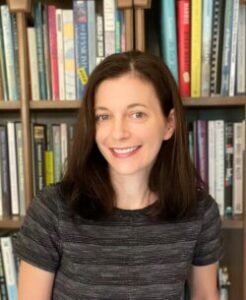 |
Jill A. Fisher is Professor of Social Medicine and core faculty in the UNC Center for Bioethics. Jill is a social scientist with a Ph.D. in Science and Technology Studies from Rensselaer Polytechnic Institute and expertise in medical sociology and research ethics. Her scholarship and teaching interests center upon how social inequalities are produced or exploited by commercialized medicine in the United States. Jill has published three books and over 50 peer-reviewed articles and book chapters. Her most recent book is Adverse Events: Race, Inequality, and the Testing of New Pharmaceuticals. Jill is the current Chair of the Science, Knowledge, and Technology (SKAT) Section of the American Sociological Association. Learn more about Jill’s research at https://www.jillfisher.net. |

